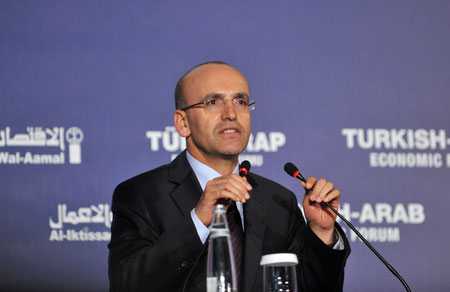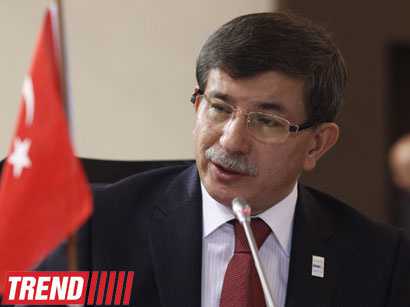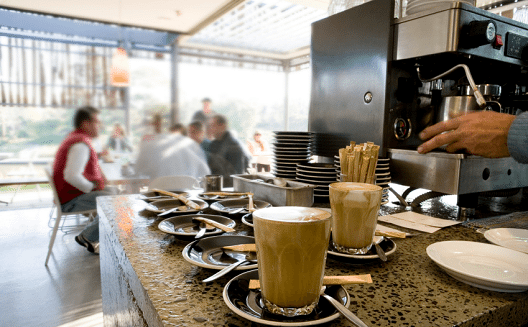At a time when Ankara and the Gulf countries are at odds due to Egypt, a significant workshop on “The Future of Turkey’s Model and Role” took place in Abu Dhabi last week where Arab and Turkish intellectuals discussed future of relationship between Arab world and Turkey.
One of the main discussions in the workshop was on the impact of minorities’ issue on Turkey’s political scene and possible effects of this issue on Turkey’s regional role.
What I observed during the discussion of the topic was that Arab intellectuals are very much confused on the situation of the minorities in Turkey. Regarding the issue of Turkey’s Alevi community, which finds many of the government’s policies and regulations troubling, there is a lack of comprehensive knowledge in the Arab side on who Alevis are, what their situation in Turkey is, and what their demands are.
Alevi problems
The problems of the Alevi community – constituting 15-20 percent of the Turkish population – are one of the main topics within the framework of Turkey’s democratization process that needs to be tackled.
Arab intellectuals, who strive to understand the Alevi issue, feels that Turkey will be facing a serious challenge on the matter
Sinem Cengiz
The fundamental demands of Alevis in Turkey are the formal recognition of “Cemevleri” (houses for religious gathering) as Alevi places of worship by state, transformation or reform of the Directorate of Religious Affairs (Diyanet) and the scrapping of compulsory religious classes for students. However, so far none of these demands have been addressed by the Turkish government – a situation that created anger and a disappointment by the Alevis.
Arab intellectuals, who strive to understand the Alevi issue, feels that Turkey will be facing a serious challenge on the matter if it fails to handle it appropriately. Arab participants in brief stated that: “We believe that Turkey is a developing country that works to solve its problematic issues.”
However, when we see the Alevi problem in the country, a deep confusion emerges towards the admiration for the Turkish model. If Turkey wants to become a regional actor, it should first be able to deal with three main issues: Alevi, Kurdish and non-Muslim minority.
These issues should not be considered as a threat by the state rather the deadlock of these issues probably will be a threat for the future aspirations of the Turkish state in the region.”
The Kurdish issue in Turkey was another crucial topic that Arab intellectuals touched upon although in that matter also there is a lack of proper understanding on what the situation of Kurds in Turkey is and where the ongoing settlement process launched by Turkish government in order to resolve the decades-old Kurdish conflict is heading to.
Kurdish worry
Arabs stated that they have a worry about the Kurdish issue in the region and they wonder that what will be the impact of the settlement process on the situation of the Kurds in the region.
According to Arab intellectuals, Turkey is facing challenges regarding its Kurdish issue as the matter is not well understood by the policy-makers. “We are in a worry that Turkish Prime Minister Recep Tayyip Erdoğan is running after his political ambitions rather than the benefit of the country” said one participant.
Indeed, the Kurdish issue should be Turkey’s number one priority to solve. It will remain as a burden on the shoulders of every Turkish government until it is solved sincerely.
However, the main cause and root of all these issues is entirely related to Turkey’s failure to become a full-fledged democracy and its failure to establish a state based on the rule of law at international standards.
The deficit of democracy leads to the persistence of problematic issues of Kurds, Alevis and religious minorities in Turkey.
Getting to the root cause
Arab intellectuals came to a conclusion with their Turkish counterparts in the discussion that unless a right reading to the root cause of the issue is done, it would be not possible to find the proper method to solve the issue – which may eventually cause Ankara’s dream to become a major player in the region to come to an end.
Arab intellectuals noted that Turkey should be able to achieve a balance between different groups and have equal policies regarding these groups, adding that only a Turkey that succeeded in solving these issues could serve as a model for the Middle East.
This workshop once more made us realize that one major obstacle between Turkey and Arab countries to understand each other’s domestic issues is the lack of knowledge and comprehensive understanding on both sides.
However, while the Kurdish and Alevi issues occupies a complicated place in Turkey, it becomes quite normal for the Arab intellectuals to fail to understand what is going in Turkey regarding these issues. However, I would say “better late than never” for the rising interest of the Arabs on the minority, Alevi and Kurdish issues in Turkey.
___________________
Sinem Cengiz is an Ankara-based Diplomatic Correspondent for Today’s Zaman Newspaper, which is the best-selling and the most circulated English daily in Turkey. Born and lived in Kuwait, Cengiz focuses mainly on issues regarding Middle East and Turkey’s relations with the region. Cengiz is also a blogger at Today’s Zaman’s blog section where she provides fresh and unusual accounts of what’s going on in Ankara’s corridors of power. She can be found on Twitter: @SinemCngz
via Why Arabs are confused on Turkey’s ethnic minorities – Al Arabiya News.





